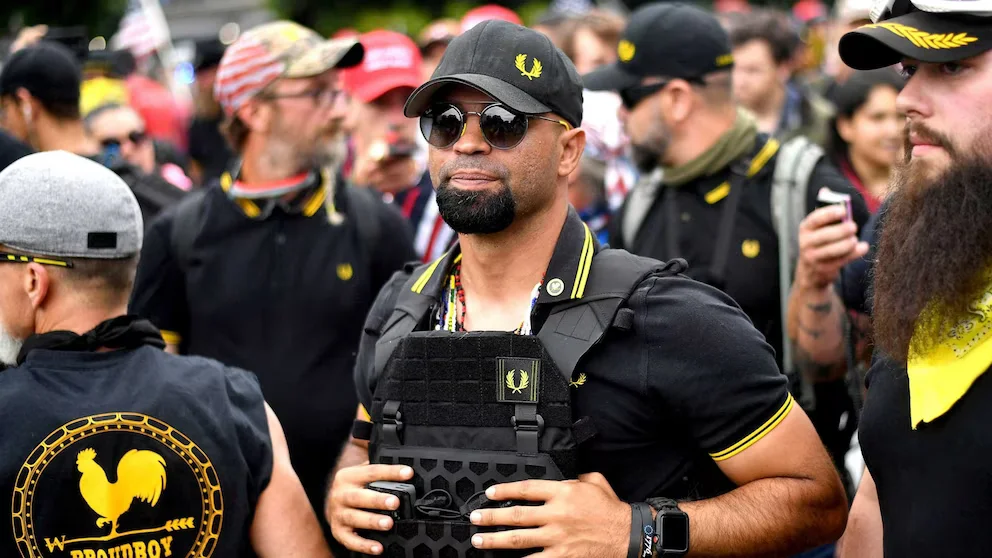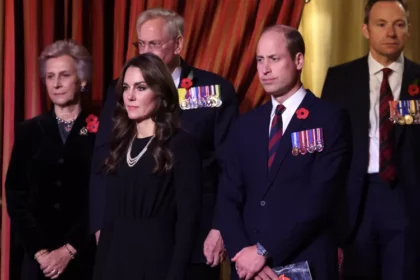Enrique Tarrio, the former national chairman of the Proud Boys, has been handed a significant prison sentence for his involvement in the January 6, 2021, attack on the U.S. Capitol. This development follows a series of high-profile cases related to the assault on the nation’s legislative heartland. Tarrio’s sentencing comes as a pivotal moment in the ongoing efforts to address the consequences of the Capitol breach.
In a recent court decision, Enrique Tarrio received a 22-year prison sentence for his role in the events of January 6th. This makes him one of six Proud Boys leaders who faced charges for conspiring to obstruct the certification of the 2020 presidential election results in Congress. Notably, Tarrio’s sentence is the longest among his co-defendants to date.
Originally scheduled for an earlier date, Tarrio’s sentencing hearing was postponed due to the illness of Judge Timothy Kelly. This delay allowed both prosecutors and defense attorneys to prepare their arguments regarding the appropriate length of his prison term. While prosecutors sought a 33-year sentence, Tarrio’s legal team requested a maximum of 15 years.
One striking aspect of this case is the stark contrast in sentences handed down to Tarrio and his fellow defendants in the Proud Boys seditious conspiracy case. Ethan Nordean, head of the Seattle chapter of the Proud Boys, along with Stewart Rhodes, founder of the Oath Keepers, received the lengthiest sentences of 18 years in a separate case. Nordean’s sentencing took place just last week, further underscoring the divergence in outcomes.
Enrique Tarrio, along with his co-defendants Joseph Biggs and Zachary Rehl, was convicted of seditious conspiracy and additional offenses in May. Although a fifth defendant, Dominic Pezzola, was acquitted of seditious conspiracy, he was found guilty of other charges, including assaulting, resisting, or obstructing certain officers and participating in the robbery of government property.
Tarrio was also convicted of obstructing an official proceeding, conspiracy to hinder an officer from performing their duties, obstructing law enforcement during a civil disorder, and damaging government property valued over $1,000.
It’s worth noting that Enrique Tarrio was not present at the actual Capitol riot. He had been arrested days earlier for setting fire to a Black Lives Matter banner stolen from Asbury United Methodist Church in Washington, D.C., and was ordered to leave the city. Prosecutors allege that from a hotel outside D.C., Tarrio directed the Proud Boys to engage in the Capitol attack in his absence.
Tarrio’s defense attorneys have consistently maintained that he had no contact with the organization’s members during the riot. They have attributed the orchestration of the events to Nordean and Biggs, asserting that Tarrio’s involvement in planning a Proud Boys protest on January 6th should not be equated with directing others to storm the Capitol using any means necessary.
Despite these substantial sentences, experts on extremism suggest that the Proud Boys are unlikely to be significantly deterred or disbanded. Cassie Miller, a senior research analyst at the Southern Poverty Law Center, points out that the group continues to actively organize and recruit. She attributes this resilience, in part, to the group’s shift from national organizing to local activism, focusing on issues such as LGBTQ and abortion rights restrictions.
Enrique Tarrio’s 22-year prison sentence marks a significant development in the aftermath of the January 6th Capitol attack. As legal proceedings continue, the impact on extremist groups like the Proud Boys remains a topic of scrutiny, with experts highlighting the challenges in curbing their activities and influence on the national stage.




